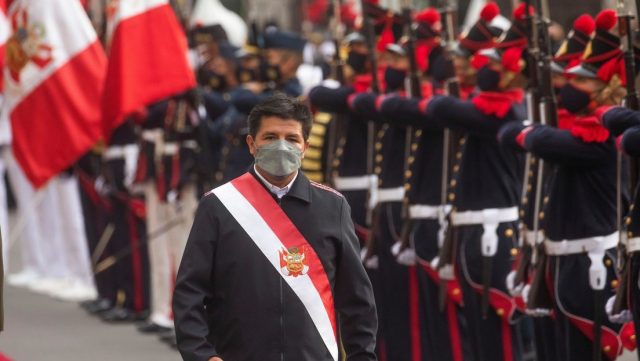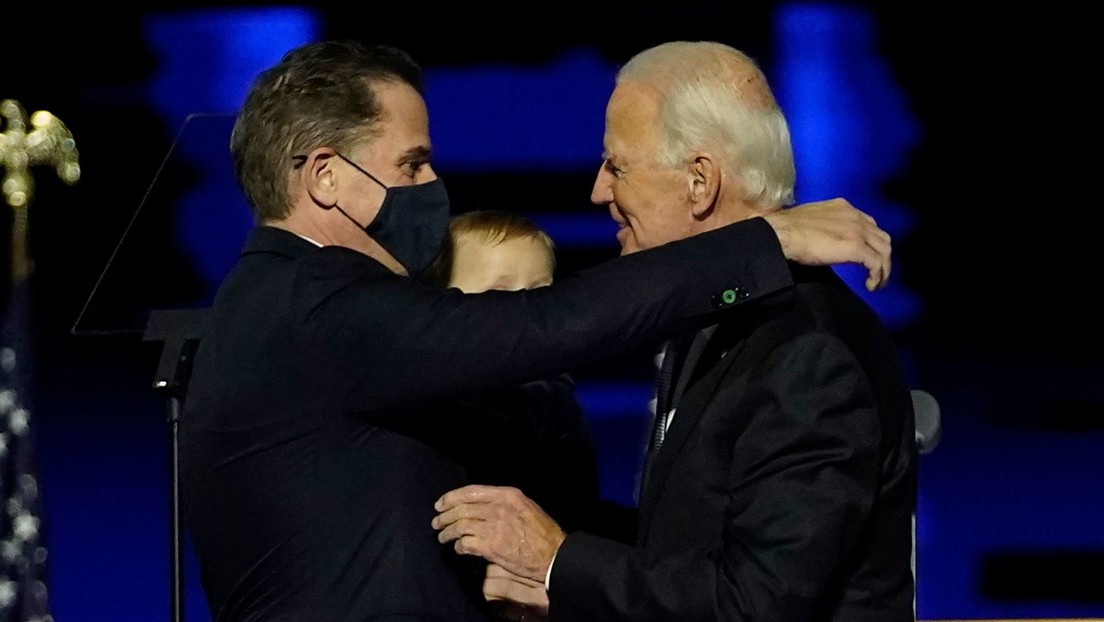The political crisis does not subside in Peru and the situation in the country remains plagued with tension amid the growing demand for President Pedro Castillo to resign from the position that he assumed just last July 28. From the moment Castillo took office, he has been boycotted, with several attempts to remove him and thus leaving a climate of ungovernability that goes back, even for several years before his administration.
This Thursday, the president traveled to the city of Huancayo, located in the department of Junín, and where some of the main protests against him have been replicated since the national strike of transport workers began last week, which, with the passing of the days, became the most serious conflict he has faced in his little more than seven months at the head of the Government.
Just in Huancayo, there were four deaths linked to the protests. On Monday, Defense Minister José Luis Gavidia confirmed that two people died in traffic accidents. In addition, a minor died after falling from a bridge into a river during one of the marches. The fourth victim is a young man who was being transferred in an ambulance and was unable to receive hospital care, reports RT.
In the following days, two other deaths were recorded in different parts of the country in the context of the demonstrations, and although they have not been caused by police repression, they do increase the tension that exists against the Government in a climate of intense uncertainty about the permanence of Castillo in power.
While the president tries to show in Huancayo that the cabinet works normally, in Congress he continues to be immersed in the plans to remove Castillo from power. This time, a motion was presented by Rosselli Amuruz, a right-wing opposition legislator who officially promoted a call for Castillo to resign.
Claims in Peru
«It is very worrying for democracy that the president has publicly declared his lack of ability to govern (…) to all this disorder that the country is experiencing, he is demonstrating total inefficiency and irresponsibility in matters of State», said the congresswoman in a letter, in which she listed the mistakes that she considers the president has made.
“Instead of convening political forces, trade unions and people who know the sectors in order to build consensus, he became involved in his four walls without informing the country of the 6 deaths of innocent people due to his total misgovernment, ineptitude in the administration of public affairs and improvisations”, she added.
The opposition has used the strike to intensify the calls for his resignation, which began practically as soon as Castillo took office.
On the contrary, Vladimir Cerrón, the founder of the Free Peru party, and who is considered «the power in the shadows», asks for a Constituent Assembly and the closure of Congress.
“The only permanent and peaceful solution for the country is a Constituent Assembly, where social classes reach a consensus, end abuses and discrimination. We alert you: If there is no change in the country’s Constitution, there is no change at all!», he wrote when inciting the street demonstrations.
Criticism
Nine of the most important unions in Peru issued a statement to reject «the extreme right-wing coup» and «all those corrupt violent mafiosi who today operate from Congress», to whom they attribute the mobilizations and strikes that have been growing in the last 10 days .
«They unleashed a strategy of demonization, of discrediting this government, they have not allowed it to govern», they accused, warning that the crisis that increased the cost of fuel, and that caused the national strike of transport workers, is worldwide and does not occur only in Peru.
«This crisis has been aggravated by the governments of the last 30 years. This government cannot be easily held responsible… we demand governance and democracy so that the promises that brought Professor Pedro Castillo Terrones to power are fulfilled», they insisted, upon joining. to the proposal that, if the conflict is not resolved soon, Congress should be closed and a Constituent Assembly elected.
The problem for Castillo is that the discontent is widespread, since the rise in fuel prices rejected by the transport workers (and which the government has already tried to moderate) resulted in an immediate and drastic increase in food prices.
In addition, the untimely decision he made on Monday morning, of imposing a curfew that he had to suspend the next day due to the massive marches against him, baffled the people.



